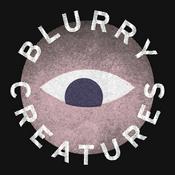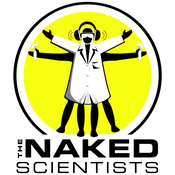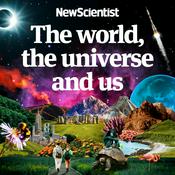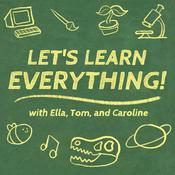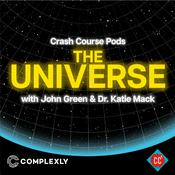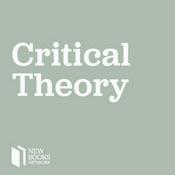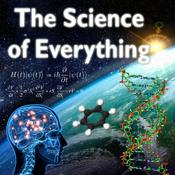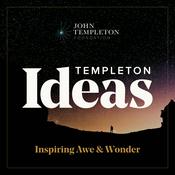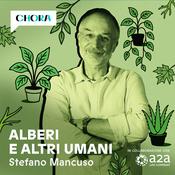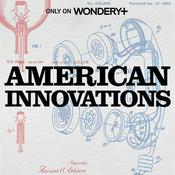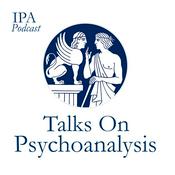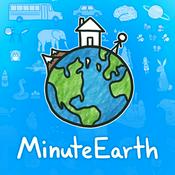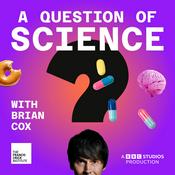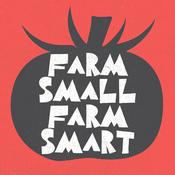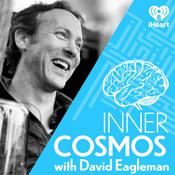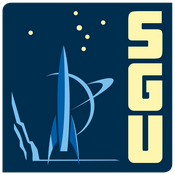31 episodes

Daniela Portella Sampaio - From Brazil to Antarctica
2025/9/23 | 53 mins.
In this episode, Jan welcomes Daniela Portella Sampaio for a conversation about her scientific journey through Antarctica and current research on Antarctic governance. We particularly focus on Antarctic intersectionality research. Daniela also shares memorable moments from the field (like finding a historic shoe) and tips on how to successfully score grants - she scored 2 (!!) Marie Skłodowska-Curie Fellowships! Tune in for a return to our regular interview-style format.

Sahar Stevenson-Jones - About the Society for Ecological Restoration Europe (SERE)
2025/6/12 | 18 mins.
Today in another European Commission Edition episode, I talked to Sahar Stevenson-Jones. She is working at SERE (The Society for Ecological Restoration Europe) and there she is the Project Officer for the Marine Restoration Project. The Marine Restoration Working Group was established at the SERE2024 Conference in Tartu, Estonia, and currently meets 4 times a year, with the 5 task forces, which are each focusing on unique objectives, meeting more regularly. The group is currently at 65 members, from across Europe, and includes researchers, practitioners, experts in finance and policy, as well as students. The group is chaired by Roberto Danovaro, and co-chaired by Joel Lindholm. Their primary priority is to adapt the SER International Principles and Standards, specifically the attributes tables of the Ecological Recovery Wheel, to the marine space. You can find out more here: www.ser-europe.org/mrwg. Enjoy the episode! All the best from Brussels.

Paris Vasilakopoulos - About the Knowledge Centre for Biodiversity (KCBD)
2025/6/02 | 14 mins.
HIFMB's Transfer Office was attending the Knowledge Exchange Network for Marine Biodiversity Cluster Event at the European Research Executive Agency (REA) of the European Commission (EC). Here in Brussels, I interviewed participants of the event - one of them being Paris Vasilakopoulos - today's guest. Paris works at the EC, specifically the Joint Research Centre (JRC) and, among many topics, we talk about his role in the Knowledge Centre for Biodiversity (KCBD). Enjoy these short episodes of the podcast coming to you straight from Brussels!

Social Science Matters 03 - Before You Go Anywhere! Practical Concerns and the Matter of Ethics
2025/2/26 | 26 mins.
Episode overview This episode covers the essentials of social science research in terms of practical concerns and ethical considerations. It firstly spends some time, thinking about time! How researchers can plan projects within specific timeframes, budgetary constraints, possible travel restrictions, and how to also think on vital matters of risk, health and safety in doing social research. The podcast secondly shifts to ethical principles, discussing the importance of taking ethical approaches and engaging formal ethical procedures when working with human subjects. The episode considers matters such as informed consent, confidentiality, and minimising harm and how ethics is not just about forms and approvals but treating people with respect, ensuring their well-being, and building trust. We also offer ‘top tips’. You can tag us on social media #SocialScienceMatters Supporting readings There is a light introduction to practicalities of doing social science research, time, cost, logistics, health, safety and ethics here: Peters, K. (2017). Your Human Geography Dissertation: Designing, Doing, Delivering. SAGE: London (chapter 5) and online: https://study.sagepub.com/yourhumangeography/student-resources/chapter-5/external-links This chapter covers the essentials of health and safety in social science work: Bullard, J (2016) ‘Health, Safety and Risk in the Field’ In: Clifford, N., Cope, M., Gillespie, T.,& French S. (eds.) Key Methods in Geography. Third Edition. Sage. Pp. 19-29 with online support: https://study.sagepub.com/keymethods3e2/student-resources/chapter-2/further-reading On ethics specifically, listeners may find the following useful: Hay, I. (2016). On being ethical in geographical research. In: Clifford, N., Cope, M., Gillespie, T.,& French S. (eds.) Key Methods in Geography. Third Edition. Sage. Pp. 30-43. https://study.sagepub.com/keymethods3e2/student-resources/chapter-3/further-reading Wilson, H. F., & Darling, J. (Eds.). (2020). Research Ethics for Human Geography: A Handbook for Students. https://sk.sagepub.com/book/mono/preview/research-ethics-for-human-geography-a-handbook-for-students.pdf Supporting websites Do you want to know more about ethics? These websites may help (we are not responsible for external content) Research Ethics Guidelines from UK Research and Innovation: https://www.ukri.org/councils/esrc/guidance-for-applicants/research-ethics-guidance/ Ethics in Social Science and Humanities Research from the European Commission: https://ec.europa.eu/info/funding-tenders/opportunities/docs/2021-2027/horizon/guidance/ethics-in-social-science-and-humanities_he_en.pdf

Social Science Matters 02 - How to Start Thinking About Social Worlds
2025/2/19 | 26 mins.
Episode overview This episode shifts our focus to how we might start to think about social worlds in our research. It outlines that how we look at the world – the assumptions we hold about it (what exists, how we know what exists) – is crucial to our start points in research, and drives the kind of questions we might ask about the world. This podcast explores the role of theory (and how it is something we are all using, all of the time anyway!) and positions theory as a useful (rather than intimidating) framework for understanding and interpreting the social world. The episode further considers how theory – thinking about the way we view the world – can open space towards valuing knowledges beyond Western understandings. Finally we consider how the way we think about the world, what we want to find out about it, will also guide the kinds of research questions we ask about it, and choice of methods we engage. You can tag us on social media #SocialScienceMatters. Supporting readings In this podcast we discuss how social science can be integrated with natural sciences – providing a different lens for looking at the world (and marine problems). These articles all deal with integration of marine social sciences with natural sciences: Markus, T., Hillebrand, H., Hornidge, A. K., Krause, G., & Schlüter, A. (2018). Disciplinary diversity in marine sciences: the urgent case for an integration of research. ICES Journal of Marine Science, 75(2), 502-509. https://doi.org/10.1093/icesjms/fsx201 Popova, E., Aksenov, Y., Amoudry, L. O., Becker, A., Bricheno, L., Brown, J. M., ... & Yool, A. (2023). Socio-oceanography: an opportunity to integrate marine social and natural sciences. Frontiers in Marine Science, 10, 1209356. https://www.frontiersin.org/journals/marine-science/articles/10.3389/fmars.2023.1209356/full Sanborn, T., & Jung, J. (2021). Intersecting social science and conservation. Frontiers in Marine Science, 8, 676394. https://www.frontiersin.org/journals/marine-science/articles/10.3389/fmars.2021.676394/full Strang, V. (2009). Integrating the social and natural sciences in environmental research: a discussion paper. Environment, Development and Sustainability, 11, 1-18. https://link.springer.com/article/10.1007/s10668-007-9095-2 Barnes, R. A., Elliott, M., Burdon, D., Atkins, J. P., Boyes, S., Smyth, K., & Wurzel, R. (2018). Integrating Natural and Social Marine Sciences to Sustainably Manage Vectors of Change and Inform Marine Policy: Dogger Bank Transnational Case Study. Estuarine and Coastal Shelf Science 234-247 https://papers.ssrn.com/sol3/papers.cfm?abstract_id=3495172 (This paper provides a practical example). In this podcast we discuss how there are other knowledge systems – ways in which the world can be understood. These are the cited sources: George, R. Y., & Wiebe, S. M. 2020. Fluid decolonial futures: Water as a life, ocean citizenship and seascape relationality. New Political Science, 424, 498-520. https://doi.org/10.1080/07393148.2020.1842706 Todd, Z. (2016). An indigenous feminist's take on the ontological turn:‘Ontology’is just another word for colonialism. Journal of Historical Sociology, 29(1), 4-22. https://mathewarthur.com/whats-new/pdf/todd-ontological-turn.pdf These papers deal with how theory matters as a framework to understanding. Peters’ article covers why ‘thinking’ and ‘theory’ – ontology (what we know about the world) – matters to marine social science research. No policy work, no work about people is outside of how we think about it. Conde et al’s paper covers this in practice, showing how the ways in which we understand the seabed, shape its practical governance. The Steinberg and Peters paper is the one Kim apologies for, for interested readers! Conde, M., Mondré, A., Peters, K., & Steinberg, P. (2022). Mining questions of ‘what’and ‘who’: deepening discussions of the seabed for future policy and governance. Maritime studies, 21(3), 327-338. https://link.springer.com/content/pdf/10.1007/s40152-022-00273-2.pdf Peters, K. (2020). The territories of governance: Unpacking the ontologies and geophilosophies of fixed to flexible ocean management, and beyond. Philosophical Transactions of the Royal Society B, 375(1814), 20190458. https://royalsocietypublishing.org/doi/full/10.1098/rstb.2019.0458 Steinberg, P., & Peters, K. (2015). Wet ontologies, fluid spaces: Giving depth to volume through oceanic thinking. Environment and planning D: society and space, 33(2), 247-264. https://doi.org/10.1068/d14148p There is a light introduction to theory, in this textbook, and associated ‘study’ website: Peters, K. (2017). Your Human Geography Dissertation: Designing, Doing, Delivering. SAGE: London (Chapter 2) https://study.sagepub.com/yourhumangeography/student-resources/chapter-2/sage-journal-articles
More Science podcasts
Trending Science podcasts
About You, Me & HIFMB - Stories of Science and the Sea
Listen to You, Me & HIFMB - Stories of Science and the Sea, The Rest Is Science and many other podcasts from around the world with the radio.net app
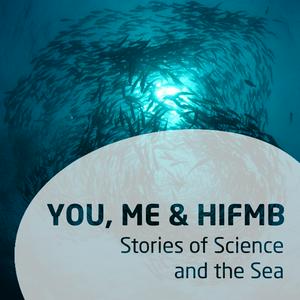
Get the free radio.net app
- Stations and podcasts to bookmark
- Stream via Wi-Fi or Bluetooth
- Supports Carplay & Android Auto
- Many other app features
Get the free radio.net app
- Stations and podcasts to bookmark
- Stream via Wi-Fi or Bluetooth
- Supports Carplay & Android Auto
- Many other app features


You, Me & HIFMB - Stories of Science and the Sea
download the app,
start listening.





